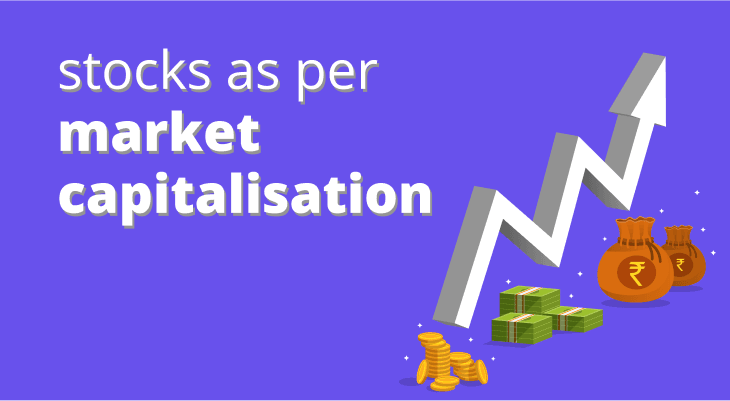
Exploring Index Funds: A Closer Look at How They Work
If you are an investor who seeks convenience, simplicity, and stability, then Index Funds are sure to attract you. Let's delve into what index funds are, how they operate, and the mechanisms through which they generate returns.
What Are Index Funds?
Index funds are a type of mutual fund or exchange-traded fund (ETF). They are designed to replicate the performance of a specific market index such as the Nifty 50 or the S&P BSE Sensex. Rather than relying on active management, where fund managers make subjective decisions to outperform the market, index funds aim to mimic the performance of a chosen benchmark index. Let’s take the Nifty 50 as an example. The Nifty 50 comprises actively traded 50 large-cap stocks listed on the National Stock Exchange of India (NSE). Moreover, the stocks within the Nifty 50 are not equally weighted. Larger, more influential companies have a higher weightage. Index funds tracking the Nifty 50 replicate this composition by holding these 50 stocks in the same proportion that aligns with their weighted representation in the index.
Here are some of the key features of index funds to help you comprehend their finer points:
How Index Funds Work: Key Features
Passive Management
As opposed to funds with an active -investment strategy, index funds are passively managed. They don't rely on constant buying and selling decisions but rather track the holdings of a chosen index.
Diversification
Index funds provide instant diversification by holding a basket of stocks from the chosen index. This shields you from the risk associated with individual stock performance.
Low Costs
A standout feature of index funds is their cost-effectiveness. With minimal trading and management activity, these funds typically have lower expenses compared to actively managed counterpart
Benchmark Tracking
The success of an index fund lies in closely tracking the performance of its benchmark index. This is achieved by holding a similar mix of assets in the same proportion as the index.
Index funds offer a straightforward investment approach, making them suitable for both new and experienced investors. While not aiming to outperform the market, they seek to provide consistent returns in line with the chosen index. As a result, you gain exposure to entire markets or specific sectors without the need for extensive research and stock picking. However, they do come with a couple of limitations.
Since index funds are designed to match the market, they are unlikely to outperform during bull markets either. Moreover, in rapidly changing market conditions, index funds lack the flexibility of active management to capitalise on emerging opportunities. Finally, if there are any benchmark index tracking errors in the fund scheme you have invested in, then it is bound to reflect in your returns which may be lower than anticipated.
Types of Index Funds
Broad Market Index Funds
These funds go beyond individual sectors, providing diversified exposure to the entire market. Investors often turn to them for stable, long-term growth, tracking well-known indices like the S&P BSE Sensex.
Sector-Specific Index Funds
For those keen on a more targeted approach, sector-specific index funds focus on particular industries or segments. This allows investors to align their portfolios with specific market sectors like IT or Banking, for example.
International Index Funds
Venturing beyond domestic markets, international index funds offer exposure to global opportunities. Tracking indices like MSCI World or FTSE All-World, these funds cater to investors with a global investment outlook.
How Index Funds Make Money
If you are considering investing in an index fund, then you must understand how they generate returns.
Capital Appreciation
As the stocks within the chosen index appreciate, so does the value of the index fund. Investors benefit from the capital gains as the overall market grows.
Dividend Income
Many stocks within an index pay dividends. Index funds pass on this dividend income to investors, providing an additional source of returns.
Reinvestment
Rather than distributing dividends as cash, index funds often reinvest these earnings back into the fund. This can enhance the compounding effect over the long term.
Who Should Invest in Index Funds?
Beginners
Due to their simplicity and passive management, index funds are an excellent starting point for people who are new to the world of investing. The straightforward approach offers a convenient introduction to the complexities of the market without having to actively monitor your portfolio.
Long-Term Investors
The comparative stability and consistent returns of index funds make them an attractive choice for investors with a long-term horizon. By mirroring the market, these funds align with the principle of long-term wealth accumulation.
Risk-Averse Investors
If you’re seeking a lower-risk investment option, then index funds are well-suited for you. Their diversified nature appeals to those who prioritise capital preservation and steadier returns over high-risk, high-reward strategies.
Aggressive Investors
For those with a higher risk tolerance and an appetite for potentially higher returns, sector-specific or international index funds might be more appealing. These funds allow for a focused approach to specific market segments.
Factors to Keep in Mind
The index funds category is quite broad, and apart from being clear about your goals and risk tolerance levels, you must consider the following factors before investing:
Expense Ratios
Index funds, generally, have a lower expense ratio than actively managed funds. While this is attractive, you should compare expense ratios across various funds to ensure cost-effectiveness and maximise returns.
Tracking Error
This metric measures how closely the fund mirrors its benchmark index. A lower tracking error signifies a more accurate replication of the market, a crucial factor for investors seeking precise alignment with their chosen index.
Liquidity
The ease of buying and selling shares, or liquidity, is vital. You should ensure that the index fund you choose has sufficient liquidity for seamless transactions.
Fund Size
Larger funds may benefit from economies of scale, leading to lower expense ratios. However, you should aim to strike a balance, considering the fund's size and your specific investment goals.
Wrapping it Up
In conclusion, index funds offer a convenient investment avenue for those seeking simplicity, broad market exposure, and consistent returns. By understanding their passive nature, low costs, and the mechanisms through which they generate returns, you can make informed decisions aligning with your financial goals. Whether you're a seasoned investor or just starting out, index funds present a compelling option in the ever-evolving world of investments.
FAQ
How do I choose the right index fund for my investment goals?
Consider factors such as the fund's expense ratio, tracking error, liquidity, and your investment goals. Ensure the fund aligns with your risk tolerance and target market exposure.
Is there a minimum investment required for index funds?
You can invest in an index fund for amounts as low as Rs. 100 as a lump sum amount or Rs. 500 via Systematic Investment Plans (SIPs).
What types of investors are best suited for index funds?
Index funds appeal to a broad range of investors. They are ideal for beginners due to their simplicity, long-term investors seeking consistent returns, and risk-averse individuals looking for lower-risk investment options.
What sets index funds apart from actively managed funds?
Index funds differ from actively managed funds in their investment strategy. While active funds rely on fund managers making subjective decisions to outperform the market, index funds adopt a passive approach, aiming to replicate the performance of a specific market index.
How do index funds generate returns without active management?
Index funds generate returns through capital appreciation and dividend income. As the stocks within the chosen index appreciate, the fund's value increases. Additionally, many stocks within indices pay dividends, providing an additional source of income for investors.
Are index funds limited to domestic markets, or can they provide exposure to global markets?
Index funds come in various types, including international index funds. These funds provide investors with exposure to global markets by tracking indices like MSCI World or FTSE All-World.
Can I expect consistent returns from index funds over the long term?
While not immune to market fluctuations, index funds aim to provide consistent, market-matching returns over the long term. Their passive nature and broad market exposure contribute to their appeal for long-term investors.


